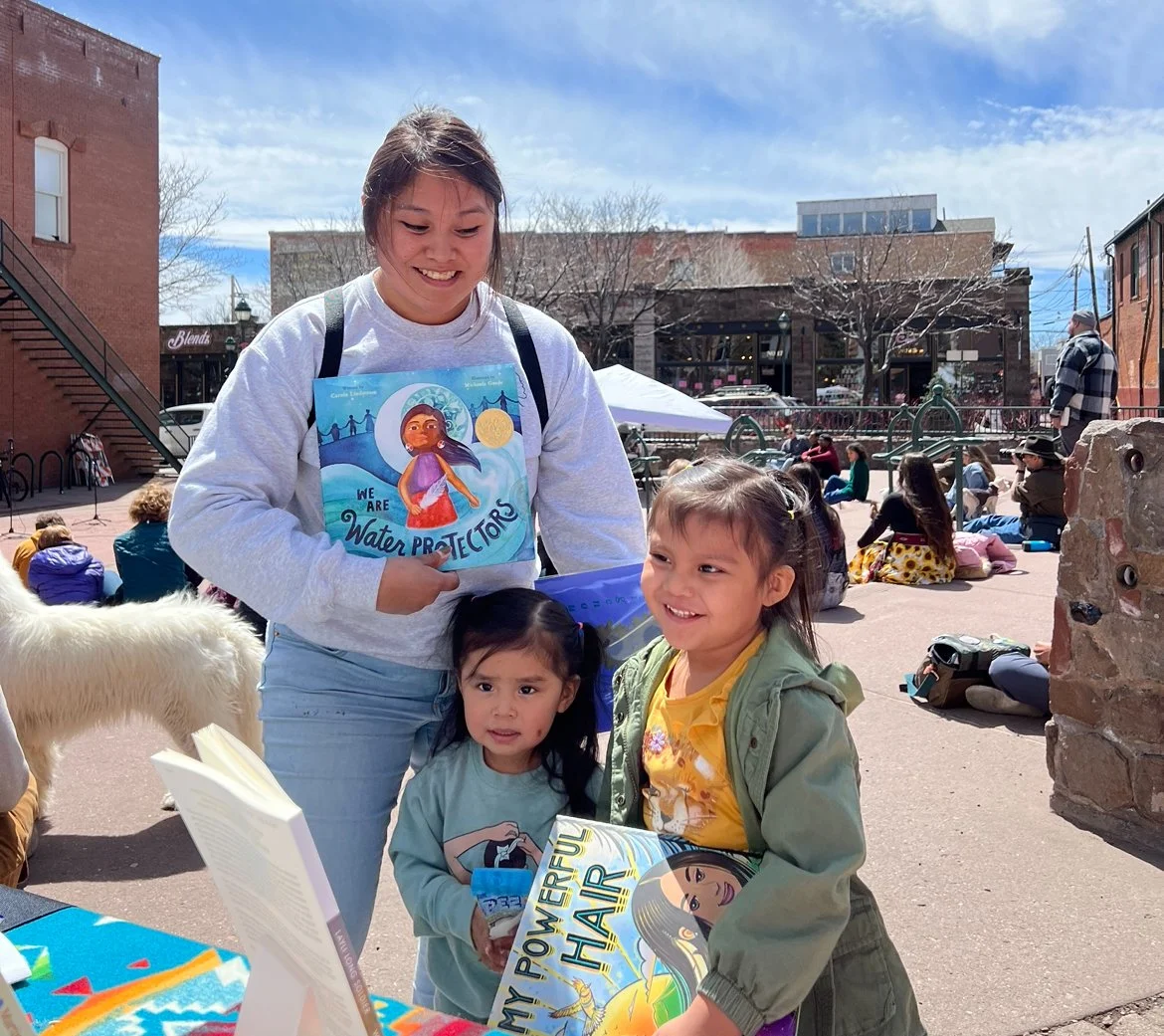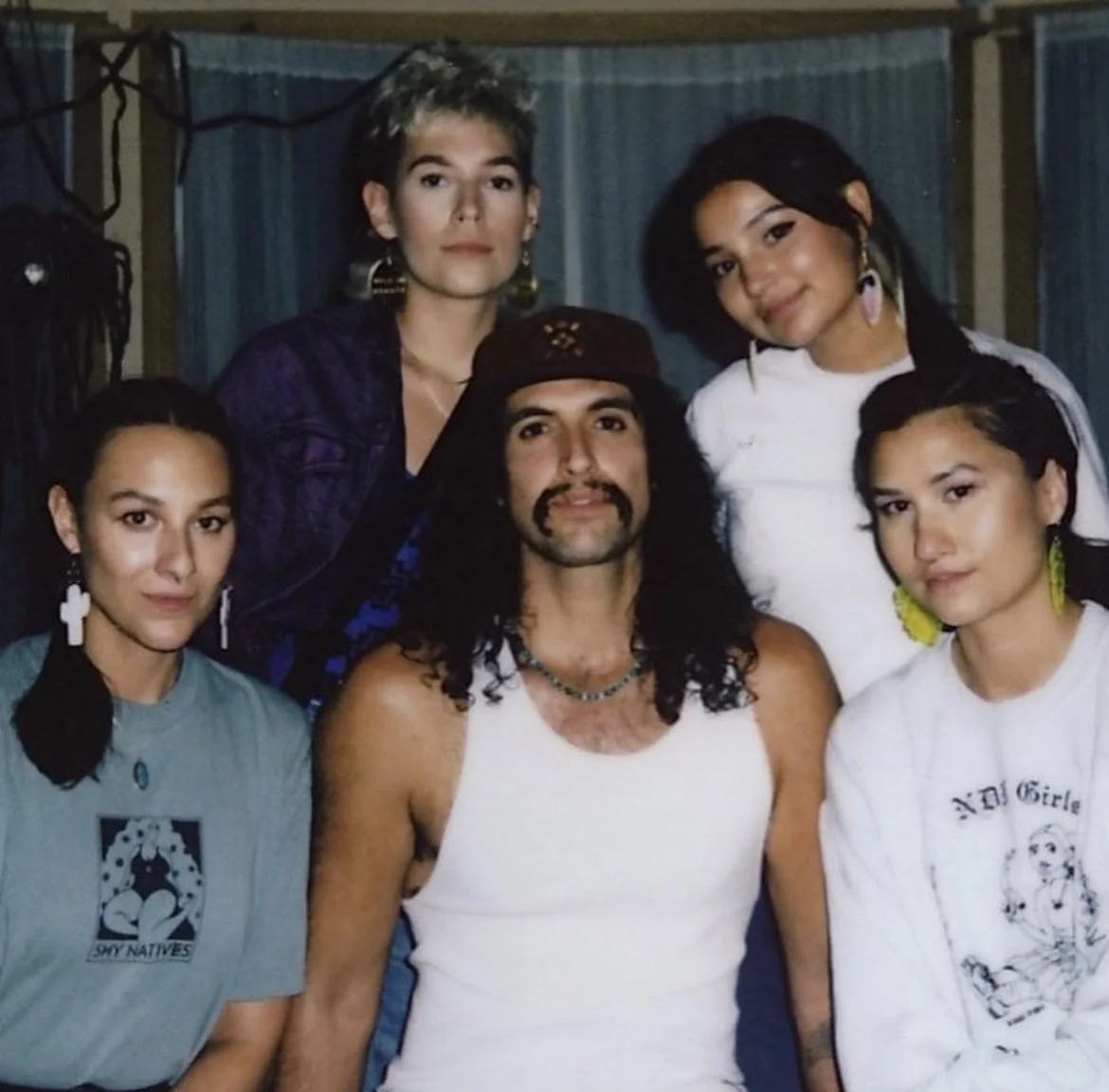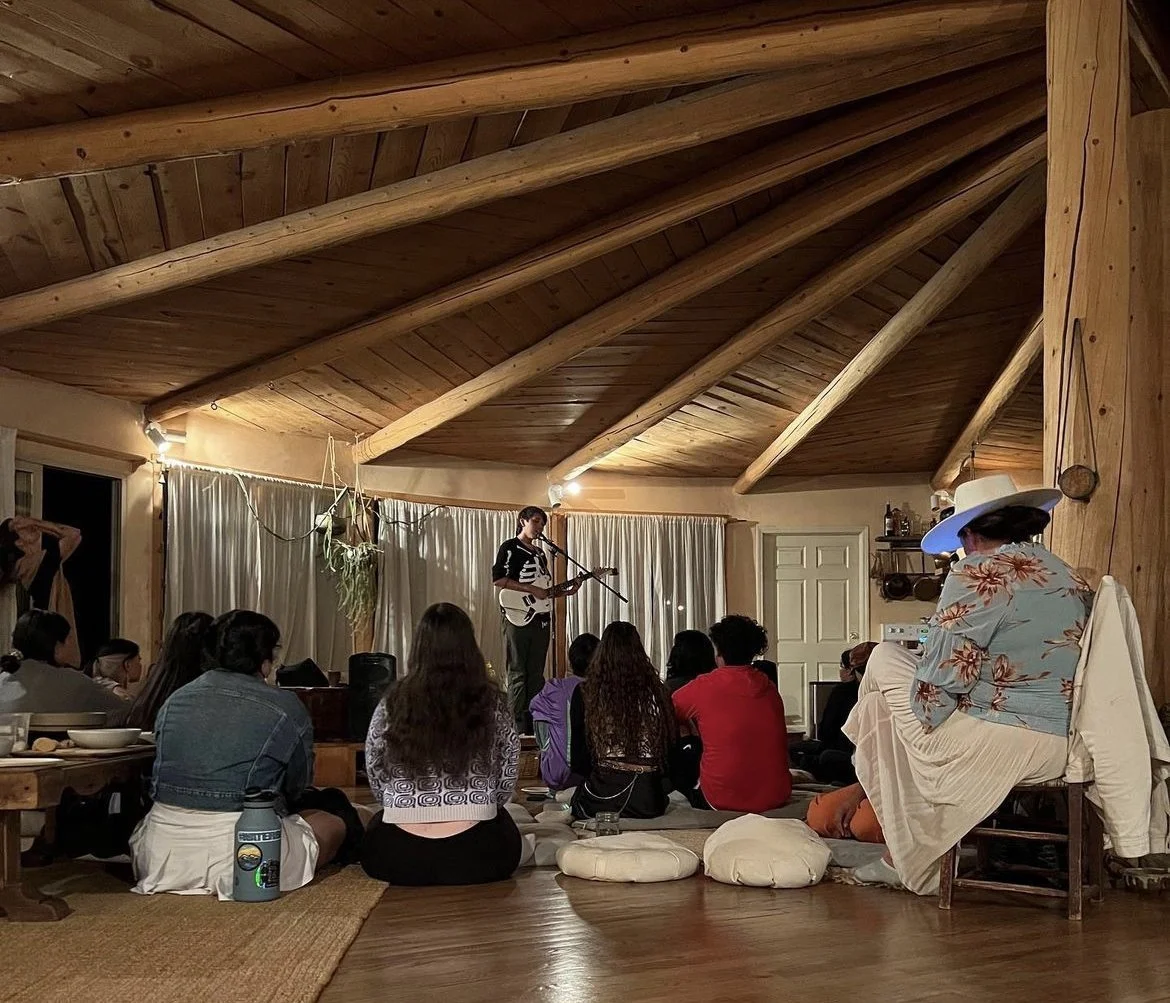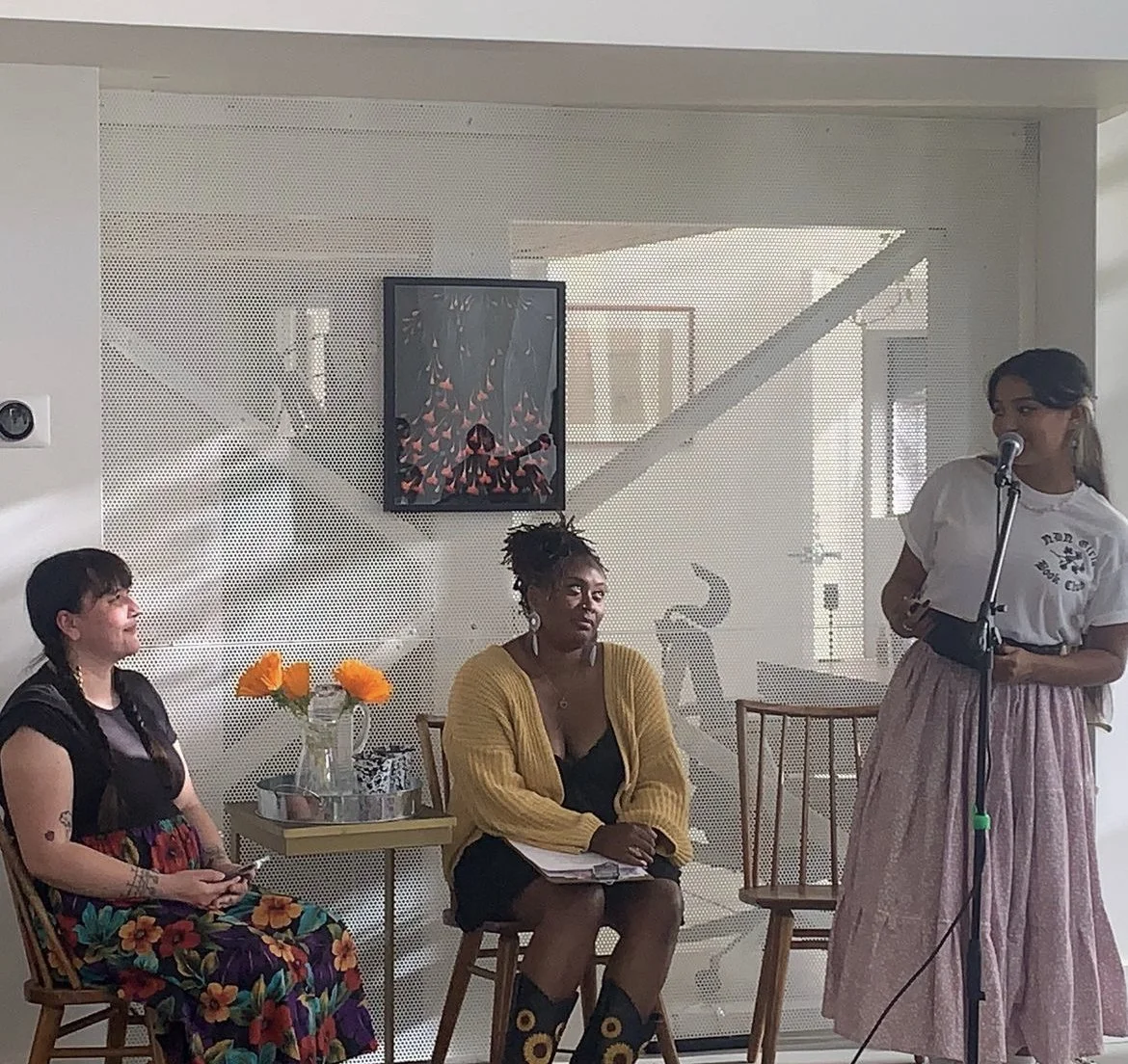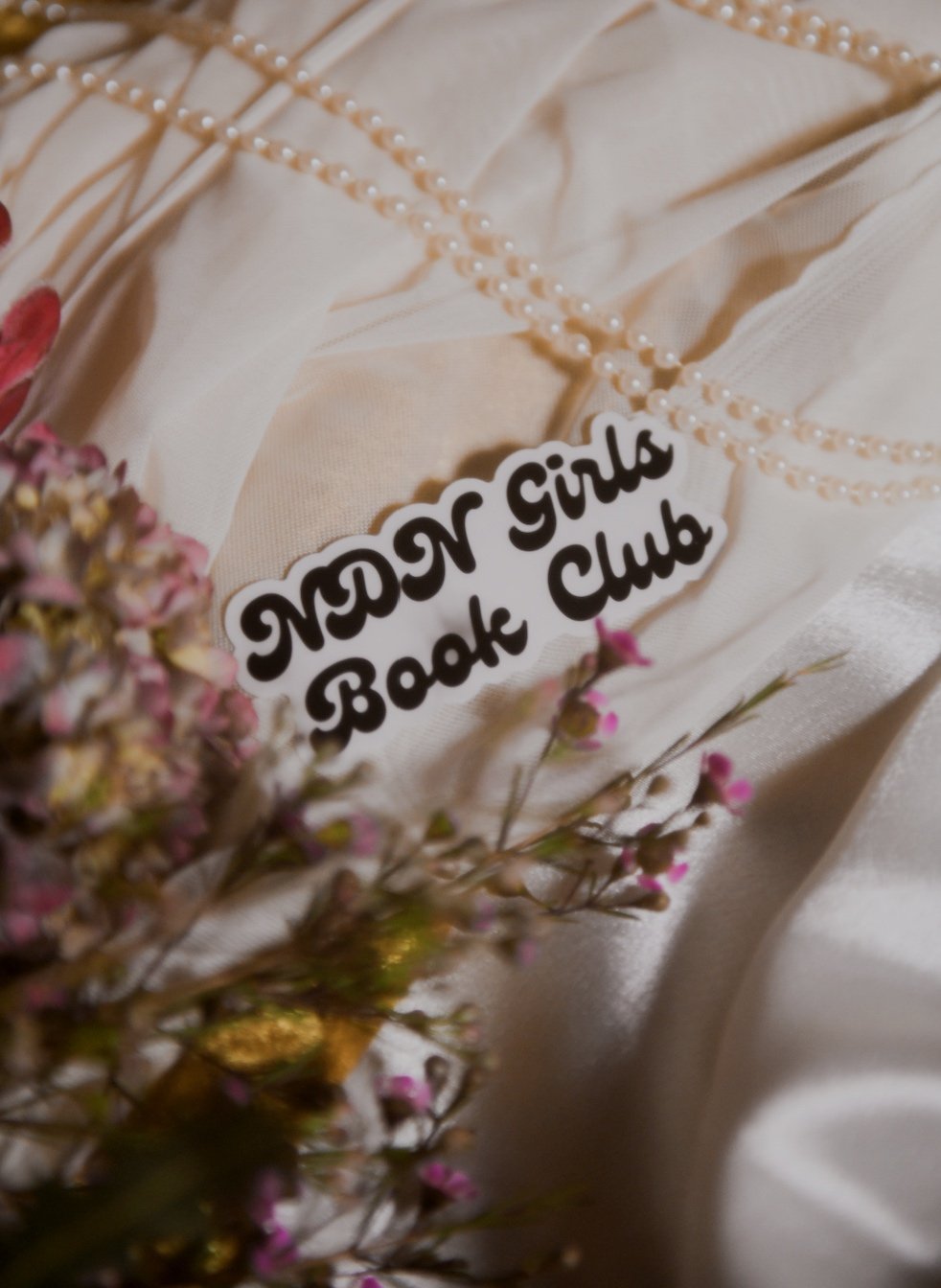
NDN Girls Book Club
is a 501(c)3 literary nonprofit that hosts free community workshops for Native people, especially Native youth & girls, in poetry, zine-making, editing, fiction, nonfiction, and Native literature talks. We aim to make accessibility to quality Indigenous literature a reality for all ages by sending out free books and literary care packages.
NDN Girls Book Club is a 501(c)3 literary organization run by and for Indigenous peoples that hosts free youth workshops, hosts author talks, uplifts Indigenous literature, supports Indigenous booksellers, and sends out free Native books.
In 2023, we distributed more than 2,000 books by Indigenous authors. In 2024, we embarked on an epic journey across the Navajo and Hopi Nations to distribute 10,000 free Native books. We’ve travelled from Muckleshoot in Washington to Piscataway lands in the Northeast, leading workshops in classrooms, tribal libraries, tribal colleges, book festivals, and museums.
NDN Girls Book Club is thrilled to have hosted events, book trades, and workshops with:
Indigenous schools and libraries: Muckleshoot Tribal School, Navajo Preparatory Academy (2023 Protect the Sacred Summit), Red Cliff Library, Institute of American Indian Arts (IAIA), Isleta Pueblo Library, Salt River Pima-Maricopa Schools, and more;
Universities/Higher Education: Arizona State University, Dartmouth College, University of Wisconsin-Milwaukee, Northern Arizona University, Stanford University, Yale University, Emerging Diné Writers Institute (Navajo Technical University);
Indigenous authors: Taté Walker, Amber McCrary, Boderra Joe, Chelsea Tay Hicks, Darcie Little Badger, Kimberly Blaeser, Halee Kirkwood, Heid E. Erdrich, Dawn Quigley, Brian Young, Traci Sorrell, Stacie Denetsosie, and more. To connect with Indigenous authors in your area, please email us for recommendations;
Indigenous booksellers: Quiet Quail Books (CA), Palabras Bookstore (AZ), Birchbark Books (MN), Abalone Mountain Press (AZ, online), and Hyphen Reads (online);
Organizations: National Congress of American Indians (NCAI), UNITY National Youth Conference, The Chapter House Los Angeles, The Nile Theater (PHX), Junior High Los Angeles, Changing Wxman Collective, the Yale Native American Cultural Center, ASU Labriola, Arizona Humanities, NPR, Collected Works Bookstore, Pukúu Cultural Community Services, Torrey House Press, Northern Arizona Book Festival, The Ruby San Francisco, Feminist, NDN Collective, Shy Natives, Inspired by Diné Bizaad (Mesa, AZ), Arizona Department of Education, IndigiPOP! (Oklahoma), Miss Indian Oklahoma, and more.
As seen in…
Past Events
About Us
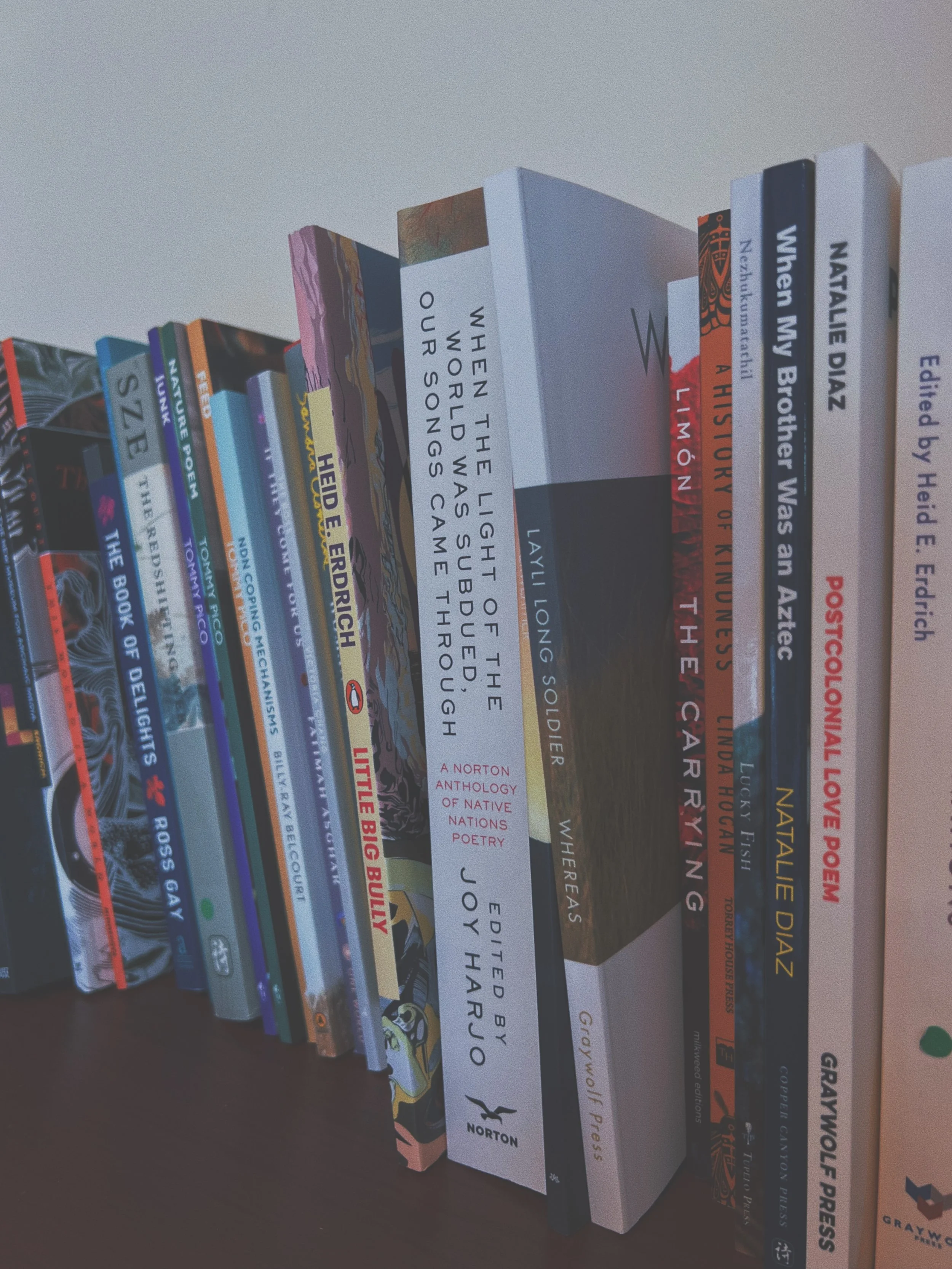
Mapping Indigenous poetics
Meet the Team
-

Kinsale Drake
-

Pte San Win Little Whiteman
-

Lily Painter
-

Danielle Emerson
FICTION MENTOR
-
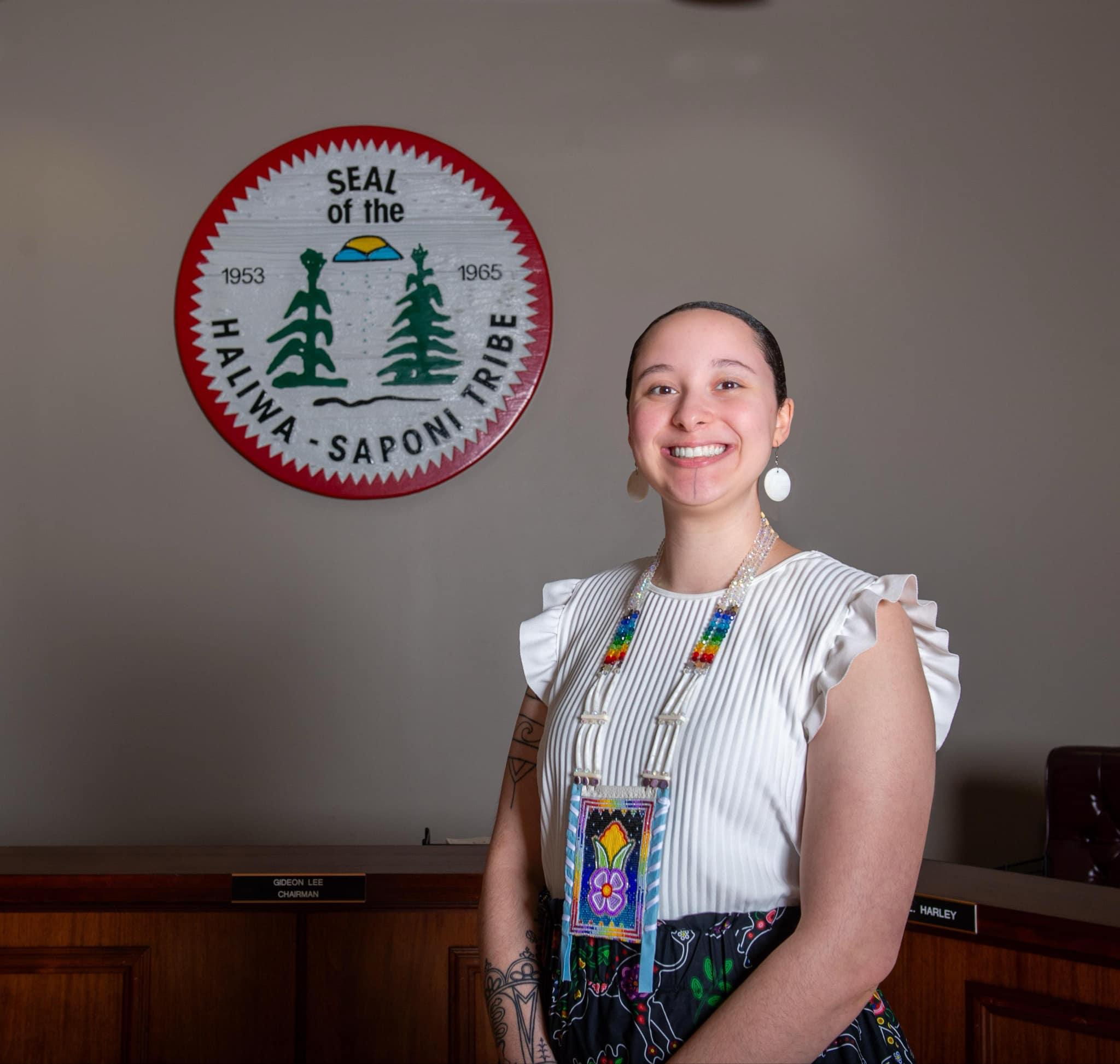
Evynn Richardson
SECRETARY
IG: @makes.laughter
Favorite Books: Bad Cree by Jessica Johns, Sisters of the Lost Nation by Nick Medina, Elatsoe by Darcie Little Badger
Explore the long, living, and enduring histories of Indigenous poetics:
-

Indians of All Tribes
Native activists occupied Alcatraz Island in San Francisco Bay in 1969 with the intent to raise public awareness about Federal Indian Policies, declare Alcatraz once-again Native land, and create a sovereign community focused on education and care. “Indians of All Tribes Alcatraz Newsletter” was published over the course of the occupation, featuring art and poetry from activists, community members, and youth on the island.
-

Combahee River Collective
In 1974, Barbara Smith and other Black feminists founded the Combahee River Collective, created to address the needs of Black lesbian women. Their statement, which was released in 1977 and credited with coining the term “identity politics,” along with their demonstrations and partnerships with artists, laid the groundwork for many BIPOC organizations and artist collectives, including Afro-Indigenous ones, to reflect on their own relationships to oppression and address their specific needs leading to liberation.
-

Diet Pepsi & Nacho Cheese
Diet Pepsi & Nacho Cheese is a chapbook of poetry published in 1977 by nila northSun’s and her then-husband’s press, Duck Down Press, which was based in Nevada. The book was nila’s first published collection of poetry. Chapbooks were becoming an increasingly popular form of self- or small-scale publishing at the time because artists could retain greater control over their work. Today, many Native writers self-publish their own work or collaborate with Native-run presses.
-

This Bridge Called My Back
Originally published in 1981, This Bridge Called My Back has been referred to as a cornerstone of women of color feminisms, intersectionality, and writings. This anthology was one of the first published collaborations between Indigenous feminist scholars and poets, Black feminist writers, and other feminist writers of color. The anthology helped to form solidarity, propel careers, and inspire movements in the late 20th century, contributing to the rise of the fields of Indigenous feminisms and Indigenous feminist poetics. Chrystos (they/them; Menominee, 2S), most notably, was first widely published in this anthology.
-

Returning the Gift
In 1992, Native authors gathered at the first Returning the Gift conference in Norman, Oklahoma, which coincided with the city’s first observance of Indigenous Peoples Day. This conference marked the largest gathering at the time of Native writers, organized by Native writers, and led to a flurry of publishing. Attendees included Simon Ortiz, Linda Hogan, Jeanette Armstrong, and more.
-

Sacred Water
Published in 1993 by Silko’s Flood Plain Press, Sacred Water presents a semi-autobiographical narrative of water; its cosmologies and pedagogies; its relationship to the speaker and her community; and the impacts of settler colonialism and environmental degradation. Features Silko’s own drawings and photographs.
FAQs
-
We’re happy you’re here! Anyone is welcome to join, though we center Indigenous peoples. Sign up for our newsletter, join our Discord, or stay connected on social media!
-
Thank you so much for donating! You can make a donation on our page here, email, or call +1 (949) 698-8960.
-
Thank you for supporting our accessible workshop programming by purchasing merch! Because one person packs all of our merch orders, please expect your order to be processed and shipped in just a few days. We ship Priority & First Class to get your merch to you as quickly as possible. Thank you for your patience!
-
We are so excited to collaborate with you! Please email us your location, budget, requested dates/times, and any other important information. We work on a sliding scale to compensate our artists & workshop facilitators fairly, and we never charge attendees or students! If you have a very tight budget, or none at all, please don’t be afraid to reach out; we prioritize hosting programming at tribal schools and Indigenous youth-centered spaces no matter the cost if the programming fits.
-
Great question! We pop-up at many different places, including markets, book festivals, and readings but your best bet is to stay tuned on our Instagram and signed up for our newsletter.
-
We are so excited to potentially join you! Please shoot us an email with any questions you have about collaborations. We help to organize, sell our merch, and do book trades at readings, event pop-ups, bookstores, markets, book festivals, conferences, and more.
-
We are so happy to have you here! If you’re an author with copies of your book you’d like to send to us, please shoot us an email and we can provide you with a shipping address! If you’re an artist interested in any collaborations, shoot us an email as well detailing your proposal. We are always open to collaborating with Native artists and small businesses, and past collaborations have included t-shirts, beaded stationary, bookmarks, stickers, decorated journals, and more.

